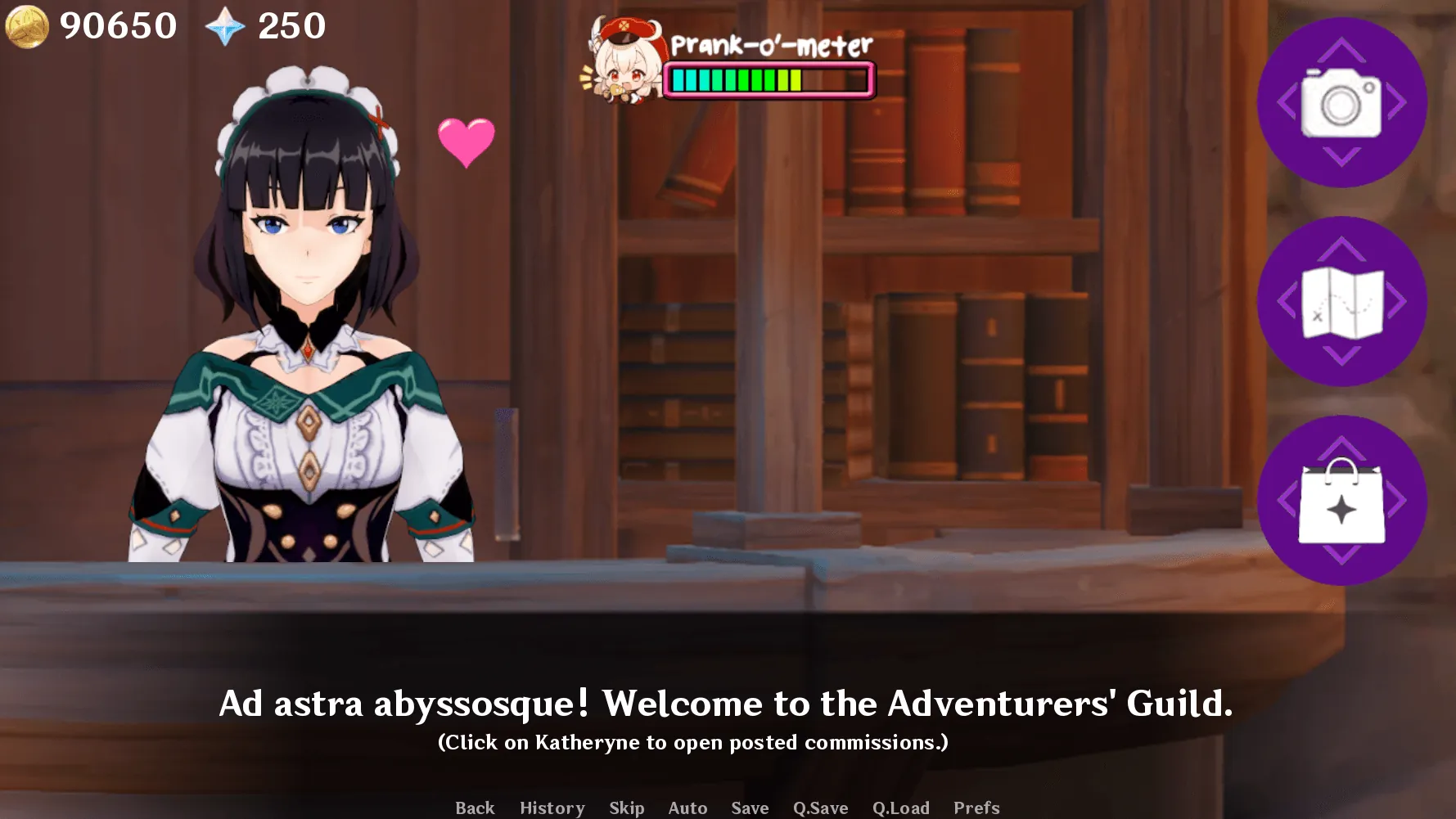
Dating My Daughter
Play Dating My Daughter
Dating My Daughter review
A Deep Dive into the Game’s Mechanics and Features
In the world of interactive games, ‘Dating My Daughter’ stands out for its unique blend of storytelling and player choice. This game offers a complex narrative where players navigate relationships and make decisions that impact the story’s progression. With its engaging gameplay and deep character development, ‘Dating My Daughter’ has captured the attention of many gamers. Let’s delve into its mechanics and features to understand what makes it so compelling.
Gameplay Mechanics
Alright, let’s get our hands dirty and talk about what really makes this game tick: the mechanics. When you first boot up ‘Dating My Daughter’ gameplay, it feels like a familiar visual novel, but you quickly realize the sheer weight of your decisions. I remember my first playthrough; I thought I could just be a “nice guy” and everything would work out. Boy, was I wrong 😅. Every single dialogue option, no matter how small it seems, is a cog in a massive machine of interactive storytelling.
The core of the experience is its player decision-making. You’re not just picking pre-destined paths; you are actively building your character’s personality, his history, and his future with every choice. This level of player choice impact is what sets the game apart. It’s not about finding a “correct” path on a walkthrough; it’s about living with the consequences of your actions, for better or worse.
Understanding Player Choices
So, how do your choices actually play out? 🤔 The game presents you with scenarios, often through text-based dialogue trees, and your selections influence several hidden meters. The most crucial ones track your relationships with the various characters, especially your daughter, Chastity.
Think of it like this: you’re constantly balancing affection, trust, and authority. Choosing to be overly permissive might boost short-term affection but could crater your trust and authority in the long run. Conversely, being a strict disciplinarian might maintain order but will slowly erode any chance of a close, affectionate bond. It’s a incredibly delicate dance.
The gameplay features that facilitate this are brilliantly simple yet deep. You’re often given a timer to make a choice, which adds a layer of pressure and realism. Do you carefully ponder the ethical implications of letting your daughter go to a party, or do you go with your gut? That split-second decision can literally lock you out of entire story arcs later on.
Pro Tip: Don’t rush your choices! The timer is there to create tension, but it’s usually generous enough to let you think. Consider the potential ripple effects of each option.
Here’s a simple breakdown of what your choices typically influence:
| Your Choice Type | Primary Metric Affected | Potential Long-term Effect |
|---|---|---|
| Supportive & Permissive | Increases Affection | Can lead to a closer, more friendly relationship |
| Strict & Disciplinarian | Increases Authority | Can foster respect but create emotional distance |
| Honest & Open | Increases Trust | Unlocks more intimate story conversations and secrets |
| Dishonest or Secretive | Decreases Trust | Can lead to confrontations and locked story paths |
This system ensures that the player choice impact is never superficial. It’s the engine of the entire game.
Relationship Dynamics
The relationship dynamics in games don’t get much more complex or realistic than they are here. 👨👧 It’s not just about you and your daughter; it’s a whole web of interconnected lives. Your actions affect your ex-wife, your friends, and even your daughter’s friends. This creates a stunningly authentic world where your past decisions constantly echo into new situations.
I learned this the hard way. In one playthrough, I consistently chose to badmouth my ex-wife, thinking it would make me look better in my daughter’s eyes. Instead, it built a wall of resentment between us. She felt I was being unfair and manipulative, and it took dozens of “good” choices to even begin repairing that damage. The game’s understanding of familial psychology is surprisingly nuanced.
The core relationship dynamics are built on a foundation of cause and effect. Your player decision-making directly shapes how characters perceive you, what they are willing to share with you, and how they react to your future actions. It’s a constant feedback loop.
For example: If you consistently prove yourself to be trustworthy by keeping your promises, Chastity will begin to confide in you about more serious issues. If you break a promise or lie, that trust meter plummets, and she will shut you out, hiding key parts of her life and effectively halting your progress until you can win her back. This makes the interactive storytelling feel genuinely reactive and personal.
Progression and Storyline
This all feeds into the brilliant story progression mechanics. 📈 This isn’t a game with three endings; it’s a game with countless variations. The narrative branches in subtle and dramatic ways based on your cumulative reputation with each character. The ‘Dating My Daughter’ gameplay loop is all about unlocking new chapters and scenes by meeting specific relationship thresholds.
The storyline doesn’t just progress linearly. It evolves. A choice you made in Chapter 1 can resurface in a completely unexpected way in Chapter 4. This creates a powerful sense of continuity and consequence that is the hallmark of great interactive storytelling. You’re not watching a story unfold; you are authoring it with every click.
Example Scenario: The Saturday Night Dilemma 😰
Chastity asks if she can go to a friend’s house on Saturday. You have a few options:
* “Yes, of course. Have fun!” (Increases Affection, slightly decreases Authority)
* “I don’t know her parents. Maybe I should drive you and say hello.” (Increases Trust, neutral effect on other stats)
* “No, it’s a school night and you have homework.” (Increases Authority, decreases Affection)
This seems simple, right? But the player choice impact here is huge. Choosing the second option might lead to a new scene where you meet the friend’s mother, unlocking a potential side story. Choosing the first option might lead to a scene where Chastity comes home upset after a fight with her friend, a scene you would never see if you had said no. The third option might lead to her sulking in her room, missing an opportunity for a bonding moment later that evening.
This is how the story progression mechanics work. Each decision opens some doors and closes others, creating a completely unique narrative pathway for each player. The gameplay features are designed to make you feel the weight of parenthood—the joy of getting it right and the frustration of getting it wrong, all weaving together to form your one-of-a-kind story. It’s this deep, systemic approach to player decision-making that makes the experience so compelling and replayable.
In conclusion, ‘Dating My Daughter’ offers a rich gaming experience with its complex narrative and deep character development. By understanding the game’s mechanics and features, players can fully immerse themselves in the story and explore the various paths available. Whether you’re interested in interactive storytelling or character-driven games, ‘Dating My Daughter’ is certainly worth exploring.






























